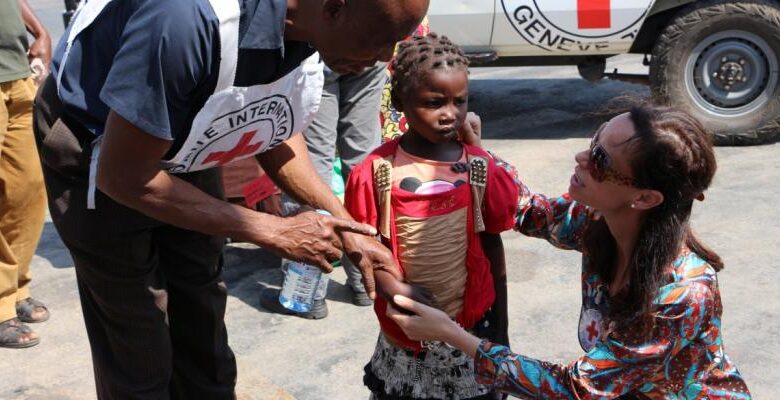DR Congo – Red Cross To Return To Djugu 22 Years After Staff Killings
The humanitarian agency has agreed to return and work in the Ituri village where six of its staff were killed in 2001 after receiving safety assurances.

The Red Cross has announced it will return to a town in eastern DR Congo next year, 22 years after the assassination of six of its staff working there.
The Geneva-based humanitarian organisation will resume activities in Djugu, Ituri province after receiving assurances from the local communities about their employees’ safety.
The announcement was made November 7 by the outgoing sub-delegate of the International Committee for the Red Cross in Bunia, Marc Soupa.
The assassination of the six Red Cross personnel in Djugu in 2001 provoked a violent trauma within the ICRC, “but today the organization wants to resume work with the communities in order to palliate the human sufferings”, Soupa said.
“We lost six of our colleagues. Today, everything has been put in place so that we can return and work in Djugu territory in 2023. We have already carried out visits and our colleagues have met with the communities and local chiefs to tell them that we want to be by your side. The trauma within the ICRC was very violent and it has taken us 21 years to arrive at a point where we can return to Djugu territory”, the outgoing ICRC official declared.
In April 2001, Rita Fox, 36, a Swiss nurse from Bern, Véronique Saro, 33, a Congolese field officer, Julio Delgado, 54, a Colombian relief delegate, Unen Ufoirworth, 29, a Congolese employee of the ICRC tracing agency, and drivers Aduwe Boboli, 39, and Jean Molokabonge, 56, both Congolese were killed as they travelled from Djugu to Fataki.
At the time the region was torn apart by two wars: one between rebels and the army and the other between the Lendu and Hema tribes.
The dead ICRC staff were found by a patrol of the Ugandan army which had gone to search for them at the request of the ICRC, which had lost all radio contact with their staff.
The region around Djugu is still torn apart by violence. The violence is being orchestrated by several community militia factions, especially the notorious Cooperative for the Development of Congo (CODECO).
According to Marc Soupa, this resumption of ICRC activities in Djugu follows security guarantees for the humanitarian workers.
Support Our Journalism
There are millions of ordinary people affected by conflict in Africa whose stories are missing in the mainstream media. HumAngle is determined to tell those challenging and under-reported stories, hoping that the people impacted by these conflicts will find the safety and security they deserve.
To ensure that we continue to provide public service coverage, we have a small favour to ask you. We want you to be part of our journalistic endeavour by contributing a token to us.
Your donation will further promote a robust, free, and independent media.
Donate HereStay Closer To The Stories That Matter




